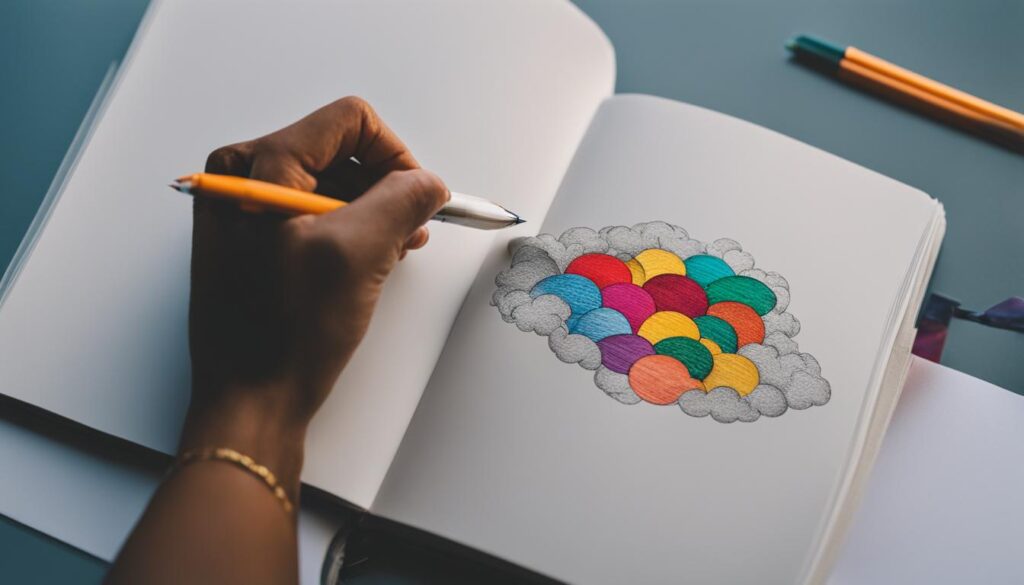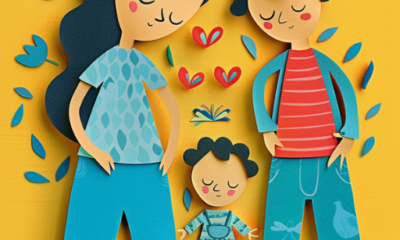Coping Strategies
5 Ways to Help You Cope With Divorce
Prepare for a resilient journey through divorce with these five key strategies – the first step towards healing awaits.

Were you aware that approximately 40-50% of marriages in the United States result in divorce? This alarming figure underscores the commonality of this significant life event.
Coping with divorce is a journey that many of us may face at some point, and it's essential to have strategies in place to navigate this challenging time. From acknowledging your emotions to seeking support and prioritizing self-care, there are effective ways to cope and emerge stronger on the other side.
Let's explore together how these five key strategies can help us navigate the complexities of divorce and foster resilience in the process.
Key Takeaways
- Embrace emotions to navigate grief effectively and foster personal growth.
- Seek support from loved ones to manage emotional stages and reduce isolation.
- Prioritize self-care practices like exercise and mindfulness for healing.
- Engage in therapeutic support and counseling to process emotions and develop healthy coping mechanisms.
Acknowledge Your Emotions
Acknowledging your emotions during a divorce is crucial for processing and healing, allowing us to navigate the grieving process effectively. It's essential to recognize and accept the full spectrum of our feelings, whether they lean towards the positive or negative.
By embracing these emotions, we take a significant step towards our own recovery. Avoiding the temptation to suppress our feelings is key, as it can help prevent long-term emotional challenges that may arise post-divorce.
When we acknowledge and express what we're going through, we open the door to personal growth and resilience. Remember, it's okay to feel a mix of emotions during this time, and giving yourself permission to experience them can lead to a more profound healing process.
Trust that by facing your emotions head-on, you're setting the stage for a positive transformation within yourself.
Seek Support From Loved Ones

During a divorce, reaching out to loved ones for support can be a crucial source of comfort and understanding as you navigate through this challenging time. Sharing your feelings with friends and family members can play a vital role in helping you manage the emotional stages of divorce.
It's normal to feel overwhelmed, sad, or even angry during this emotional process, and having a support system can help you handle divorce more effectively. Loved ones can offer a listening ear, practical help like running errands or providing childcare, and emotional support to help you cope with divorce depression or any other struggles you may be facing.
Connecting with support groups or simply confiding in those close to you can make you feel less isolated and more emotionally resilient. Remember, it's okay to lean on those who care about you during this difficult time.
Prioritize Self-Care
To navigate the challenges of divorce, prioritizing self-care is essential for fostering healing and emotional well-being. Amid the divorce stress, engaging in self-care practices plays a crucial role in promoting emotional resilience and aiding in the healing process. By prioritizing self-care, individuals can reduce stress levels, maintain emotional balance, and improve their overall well-being post-divorce. Taking time for self-care activities such as exercise, meditation, and pursuing hobbies not only helps in building self-esteem but also contributes to better mental health outcomes. Ensuring adequate rest, proper nutrition, and practicing mindfulness are vital components of a comprehensive self-care routine. Below is a visual representation of how self-care can positively impact individuals going through a divorce:
| Self-Care Benefits | Examples |
|---|---|
| Reduce stress levels | Exercise, meditation |
| Promote emotional resilience | Pursuing hobbies |
| Build self-esteem | Engaging in self-care activities |
| Improve mental health | Proper nutrition, mindfulness |
Engage in Therapeutic Activities

Engaging in therapeutic activities post-divorce can provide valuable support and tools for processing emotions and gaining new perspectives. Counseling and support groups are essential for coping with divorce.
Online therapy platforms like Talkspace offer convenient and accessible therapeutic support, allowing individuals to seek help from the comfort of their homes. Marriage counseling can't only strengthen relationships but also assist in navigating the challenges that come with divorce, fostering understanding and effective communication.
It's also crucial to consider divorce counseling for children to support their emotional well-being during this transition.
These therapeutic activities serve as a safe space to explore feelings, address concerns, and develop healthy coping mechanisms. They offer guidance on how to navigate the emotional rollercoaster that often accompanies divorce, helping individuals gain new insights and a clearer understanding of their situation.
Focus on Healing and Growth
Navigating through the aftermath of divorce involves focusing on healing and growth to cultivate a stronger sense of self and emotional resilience. Healing from divorce requires acknowledging and processing your emotions in a healthy manner. It's essential to engage in self-reflection, learn from the experience, and implement positive changes to foster personal growth. Reflecting on the opportunities for growth post-divorce can lead to increased resilience and emotional strength. Embracing the healing process allows for acceptance, closure, and moving forward positively. Prioritizing self-care, self-compassion, and patience are crucial components of the healing and growth journey after divorce.
| Key Points | Importance |
|---|---|
| Acknowledge emotions | Vital for healing |
| Self-reflection | Promotes personal growth |
| Positive changes | Facilitate resilience and strength |
| Acceptance and closure | Essential for moving forward positively |
| Self-care and compassion | Crucial for healing and growth journey |
Frequently Asked Questions
How Can I Ease the Pain of Divorce?
We can ease the pain of divorce by engaging in self-care activities like exercise, meditation, and hobbies. Seeking support from loved ones or therapists is vital. Remember, allowing time to grieve, practicing self-compassion, and focusing on personal growth are crucial steps in healing.
Does Divorce Pain Ever Go Away?
The pain of divorce can feel like an uninvited guest overstaying. Yet, with time and self-care, it does soften. We heal, adapt, and grow. While the ache may linger, it evolves, making room for new beginnings.
How Do You Accept Divorce When You Don't Want It?
Accepting divorce when unwanted involves acknowledging feelings, allowing space to grieve, and embracing gradual healing. It's about recognizing reality, fostering self-compassion, and moving forward positively. It's a journey we navigate with patience and support.
How Long Does It Take to Emotionally Recover From Divorce?
It varies for each person, but on average, it takes about 2 years to emotionally recover from divorce. Factors like marriage length, reason for divorce, and coping mechanisms play a role. Over time, both men and women can fully recover.
Conclusion
So, there you have it. Divorce, the gift that keeps on giving. Remember to embrace those emotions, lean on friends and family (or a therapist), treat yourself like royalty, and maybe even take up underwater basket weaving for some therapeutic release.
And hey, who knows, maybe one day you'll look back on this time as the best thing that ever happened to you. Cheers to personal growth through heartbreak!
Maya brings a wealth of experience in providing emotional support to individuals facing life’s challenges. Her contributions to How Get Divorce are characterized by empathy, understanding, and a profound sense of authority on matters of emotional well-being. Maya’s work is dedicated to ensuring that our community feels supported and understood, offering tools and advice to cope with the emotional aspects of divorce.
Coping Strategies
Man in His Forties: Coping With Emotional Divorce Support
In the tumultuous sea of emotional divorce, a man in his forties must navigate uncharted waters to find stability…

As men in their forties experience the emotional challenges of divorce, they may feel lost and overwhelmed, like sailors navigating a stormy sea, dealing with the sudden upheaval of their once familiar lives.
The journey to finding stability in this new chapter can be daunting, but there are ways to weather the emotional turmoil and emerge stronger on the other side.
By exploring the complexities of coping mechanisms, understanding the unique challenges faced by men in this age group, and discovering the power of seeking support, individuals can begin to unravel the threads of their emotional tapestry and embark on a path towards healing and renewal.
Key Takeaways
- Seek therapy for emotional healing and personal transformation post-divorce.
- Build a support network for expressing feelings and gaining perspective.
- Practice mindfulness techniques and engage in joyful activities for resilience.
- Prioritize self-care routines and set emotional boundaries for mental well-being.
Unique Emotional Challenges for Men Over 40
When navigating through divorce, men over 40 often encounter unique emotional challenges stemming from their established routines and identities. The process of divorce can shake the very foundation of their lives, leading to feelings of loss, loneliness, and uncertainty.
For many men in this age group, coping with the emotional aftermath of divorce can be particularly daunting due to the deep emotional attachments built over years of marriage. One of the most significant hurdles they face is redefining their identity and purpose post-divorce. The fear of starting over can loom large, casting a shadow of doubt over their ability to rebuild their lives from scratch.
This period may be fraught with feelings of failure, rejection, and a sense of being adrift in uncharted waters. It's crucial for men over 40 to acknowledge these emotional challenges and seek the necessary support to navigate this turbulent phase with resilience and courage.
Coping Strategies for Emotional Divorce Support

To effectively navigate the emotional challenges of divorce, individuals can benefit from implementing a range of coping strategies tailored to promote healing and personal growth. When facing the turmoil of divorce, especially for men in their forties, emotional support plays a crucial role in the healing process.
Here are three essential coping strategies to consider:
- Seek Therapy: Engaging in therapy can provide a safe space to explore emotions, gain insights, and work through the phases of grief post-divorce. A therapist can offer valuable support and guidance for emotional healing and personal transformation.
- Practice Mindfulness Techniques: Incorporating mindfulness techniques into daily routines can help in calming the mind, reducing stress, and improving overall well-being. Mindfulness allows individuals to stay present, acknowledging feelings without judgment, which is essential in the healing journey.
- Focus on Self-Care and Hobbies: Taking time for self-care activities and reconnecting with hobbies can be therapeutic. Engaging in activities that bring joy and fulfillment can aid in emotional healing and growth. Building a support network of friends, family, or support groups can also provide invaluable encouragement and understanding during this challenging time.
Navigating Co-Parenting Responsibilities
Navigating co-parenting responsibilities involves collaborative decision-making and effective communication between parents to ensure the well-being and upbringing of their children. Shared custody arrangements and coordinated schedules are essential aspects of co-parenting. It's crucial to address and manage differences in parenting styles that may arise between co-parents. By recognizing these distinctions and working together to find common ground, parents can create a more stable and harmonious environment for their children.
Effective communication plays a pivotal role in co-parenting, enabling parents to discuss important matters, make joint decisions, and resolve conflicts amicably. Seeking out co-parenting support groups and resources can offer valuable assistance in navigating co-parenting responsibilities. These groups provide a platform for sharing experiences, gaining insights, and learning effective co-parenting strategies. Remember, it's okay to seek help and guidance as you navigate the complexities of co-parenting. Together, with open communication and a willingness to cooperate, parents can foster a supportive and nurturing environment for their children amidst the challenges of divorce.
Importance of Seeking Emotional Support

Moving from the realm of co-parenting responsibilities, it becomes imperative to underscore the significance of seeking emotional support as a crucial component in navigating the aftermath of divorce. Divorced men often find themselves grappling with a myriad of complex emotions that can be overwhelming. Here are three essential aspects to consider when it comes to seeking emotional support:
- Creating a Support System: Building a network of friends, family, or support groups can provide a safe space to express feelings and gain perspective on the divorce experience. Having individuals who offer empathy and understanding can be invaluable in the healing process.
- Professional Help: Seeking therapy or counseling from qualified professionals can equip divorced men with the necessary tools and techniques to process their emotions effectively. Professional guidance can facilitate a smoother journey towards emotional healing.
- Connecting with Peers: Engaging with others who've gone through similar experiences can offer a sense of camaraderie, shared understanding, and practical insights for coping with the challenges of divorce. Sharing stories and experiences can foster a sense of belonging and mutual support.
Practical Tips for Resilience and Strength
Practicing self-care routines, such as mindfulness meditation and exercise, is essential for building resilience and strength when navigating emotional divorce support. These activities not only promote physical well-being but also contribute to mental clarity and emotional stability. Alongside these practices, seeking a support network can provide a safe space for men to share their feelings and experiences during this challenging time. It's crucial to engage in activities that bring joy and fulfillment, as they can act as a beacon of light in the midst of emotional turmoil. Setting boundaries is key to safeguarding your emotional health and ensuring self-care remains a top priority. Additionally, utilizing coping strategies like journaling or therapy can help process emotions and foster resilience.
| Resilience Tips | Strength Strategies |
|---|---|
| Mindfulness meditation | Exercise regularly |
| Seek support network | Engage in joyful activities |
| Set emotional boundaries | Utilize coping strategies |
| Practice self-care routines | Prioritize mental health |
Frequently Asked Questions
What Divorce Does to a Man Emotionally?
Divorce can deeply impact a man emotionally, leading to feelings of loss, sadness, and confusion. It may trigger a sense of failure and low self-esteem. Seeking emotional support and therapy can aid in healing and self-rebuilding.
How Long Does It Take to Emotionally Recover From a Divorce?
Emotionally recovering from divorce varies widely, taking months to years. Factors like marriage duration and coping mechanisms influence the process. Research suggests it may take 3 to 5 years on average. Support and self-care aid in healing.
How Do You Survive a Divorce at 45?
We survive a divorce at 45 by acknowledging our emotions, seeking support from loved ones or professionals, prioritizing self-care, focusing on personal growth, understanding the financial aspects, and allowing ourselves time to heal and envision a positive future.
How Can a Man Survive Financially After Divorce?
Surviving financially after divorce involves understanding obligations, creating a budget, seeking advice, and exploring income options. We must be proactive in managing expenses and staying informed about legal rights to maintain stability post-divorce.
How Can Emotional Support Help in Navigating a Contested Divorce?
During a navigating contested divorce Arkansas, emotional support is crucial for maintaining a clear mind and making rational decisions. Friends, family, or therapists can provide a listening ear, offer guidance, and help navigate the turbulent waters of a contested divorce. Emotional support can provide a much-needed lifeline during this difficult time.
Conclusion
As we embrace the changes post-divorce, seeking emotional support is crucial for our healing journey. Navigating through the challenges of co-parenting while rebuilding our lives requires resilience and strength.
By acknowledging our emotional struggles and reaching out for guidance, we can pave the way for a brighter future. Let's face these obstacles head-on, knowing that support and self-care will lead us to a place of peace and fulfillment.
Maya brings a wealth of experience in providing emotional support to individuals facing life’s challenges. Her contributions to How Get Divorce are characterized by empathy, understanding, and a profound sense of authority on matters of emotional well-being. Maya’s work is dedicated to ensuring that our community feels supported and understood, offering tools and advice to cope with the emotional aspects of divorce.
Coping Strategies
Be in Stillness to Declutter Your Mind & Find Peace

Do you ever feel overwhelmed by the constant noise and chatter in your mind? I definitely do. The daily stress, the never-ending to-do lists, the worries and fears that keep us awake at night. It can all be too much, clouding our judgment and taking away our peace of mind.
But what if I told you that there is a way to quiet the storm within and find a sense of calm amidst the chaos? It starts with embracing stillness.
Stillness is not just the absence of noise, but a state of mind where we can declutter our thoughts and find peace. It is in the stillness that we can reconnect with ourselves, gain clarity, and tap into our inner wisdom.
Whether it’s finding a quiet corner in nature, sitting in meditation, or simply taking a few deep breaths, stillness allows us to let go of the mental clutter that weighs us down. It creates space for new insights, creativity, and a deeper understanding of ourselves.
Join me on this journey of discovering the transformative power of stillness. Together, let’s unlock the peace and serenity that lies within us.
Key Takeaways:
- Embracing stillness is a pathway to decluttering your mind and finding peace.
- Stillness is not just the absence of noise but a state of mind where we gain clarity and tap into our inner wisdom.
- By letting go of mental clutter, we create space for new insights and a deeper understanding of ourselves.
- Stillness can be found in moments of solitude, meditation, and deep breathing.
- Join me on this journey of discovering the transformative power of stillness and unlocking inner peace.
The Importance of Decluttering Your Mind
Decluttering your mind is vital for maintaining mental clarity and finding peace of mind. A cluttered mind can lead to increased stress, anxiety, and a lack of focus. By decluttering your mind, you can create space for more positive thoughts, increased productivity, and a greater sense of well-being.
When your mind is cluttered, it becomes challenging to prioritize tasks and make clear decisions. Thoughts and worries can swirl around, causing mental chaos and preventing you from experiencing mental clarity. By decluttering your mind, you can untangle these thoughts and create mental space for constructive thinking and problem-solving.
Decluttering your mind also allows you to let go of negative emotions and mental baggage. It frees you from ruminating on past events or worrying excessively about the future. Instead, you can focus on the present moment and cultivate a sense of inner peace.
“The mind is like water. When it’s turbulent, it’s difficult to see. When it’s calm, everything becomes clear.” – Buddha
In addition, decluttering your mind promotes better concentration and focus. When your thoughts are scattered and cluttered, it’s challenging to concentrate on one task at a time. By decluttering your mind, you can eliminate mental distractions and improve your ability to stay present and engaged.
By decluttering your mind, you create a pathway for mental clarity and peace of mind. It allows you to let go of unnecessary mental burdens, cultivate a positive mindset, and embrace a sense of calm and tranquility. Whether you achieve this through mindfulness, meditation, journaling, or other techniques, decluttering your mind is an essential practice for overall well-being.
Benefits of Decluttering Your Mind:
- Mental clarity: Decluttering your mind clears away mental fog and enhances your ability to think clearly and make sound decisions.
- Reduced stress: A cluttered mind can cause stress and overwhelm. Decluttering your mind helps alleviate these feelings and promotes relaxation.
- Increased focus: By eliminating mental distractions, decluttering your mind allows you to concentrate better on the present task at hand.
- Greater peace of mind: A decluttered mind brings about a sense of peace and tranquility, enabling you to experience inner calm and well-being.
| Steps to Declutter Your Mind | Benefits |
|---|---|
| Create a daily meditation practice | Enhances mental clarity and reduces stress |
| Practice mindfulness throughout the day | Increases present-moment awareness and promotes a peaceful state of mind |
| Journal your thoughts and emotions | Externalizes thoughts, provides a sense of release, and promotes self-reflection |
| Identify and let go of negative thought patterns | Reduces mental clutter and promotes a positive mindset |
| Engage in physical exercise or movement | Releases tension and boosts mood, contributing to a clearer state of mind |
Marie Kondo’s Approach to Mind Decluttering
Marie Kondo, renowned organizing consultant, has revolutionized the way we declutter with her book “The Life-Changing Magic of Tidying Up.” Her unique approach focuses on finding joy and creating harmony in our living spaces. But did you know that her philosophy can also be applied to decluttering our minds?
When it comes to mind decluttering, Marie Kondo’s key question is, “Does it spark joy?” Just as we assess our belongings and let go of those that no longer bring us joy, we can do the same with our thoughts and inputs. By recognizing the thoughts that uplift us and bring us positivity, and letting go of those that cause mental clutter, we can create a peaceful and harmonious internal environment.
Embracing Marie Kondo’s approach to mind decluttering is about being mindful of our mental state and consciously choosing thoughts that spark joy. It’s about curating our mental space and surrounding ourselves with thoughts that uplift and inspire us. By practicing this perspective, we can experience a greater sense of clarity, peace, and well-being.
Let’s take inspiration from Marie Kondo and apply her principles to our own minds. Below, we’ve provided a table that outlines the key steps of Marie Kondo’s approach to mind decluttering:
| Step | Description |
|---|---|
| 1 | Reflect on your thoughts and emotions |
| 2 | Identify thoughts that bring you joy and positivity |
| 3 | Let go of thoughts that cause mental clutter |
| 4 | Replace negative thoughts with positive affirmations |
| 5 | Cultivate gratitude and focus on the present moment |
Remember, the goal of mind decluttering is not to completely eliminate all thoughts, but rather to prioritize and curate your mental space. Just as a decluttered home brings a sense of calm, a decluttered mind can lead to greater clarity and peace of mind.
“The space in which we live should be for the person we are becoming now, not for the person we were in the past.” – Marie Kondo
By following Marie Kondo’s approach to mind decluttering and consciously choosing thoughts that spark joy, we can create a mental environment that promotes peace, clarity, and well-being. Let’s embrace this philosophy and embark on a journey towards decluttering our minds and finding lasting peace.
Mindful Mind Hacks for Decluttering Your Mind
To declutter your mind and reduce the mental load, incorporating mindful mind hacks into your daily routine is essential. These hacks can provide a sense of peace and relaxation, helping you achieve a clearer and more focused state of mind. By incorporating these hacks into your life, you can experience a greater sense of peace and tranquility.
Limit Exposure to News and Social Media
Excessive exposure to news and social media can contribute to mental clutter and overwhelm. To maintain a peaceful mind, consider setting boundaries and limiting your consumption of media. Choose specific times of the day to check news updates or catch up on social media, and allocate the rest of your time to more uplifting and positive activities.
Let Go of Toxic Relationships
Toxic relationships can drain your mental energy and contribute to a cluttered mind. Take a mindful approach to evaluate your relationships and identify those that no longer serve your well-being. By letting go of toxic connections, you can create space for healthier and more fulfilling relationships, allowing for a greater sense of peace and serenity.
Practice Mindfulness Meditation
Mindfulness meditation is a powerful technique for decluttering the mind. By dedicating a few minutes each day to meditation, you can cultivate a heightened sense of awareness and let go of unnecessary thoughts and worries. This practice can aid in reducing mental clutter and providing a greater sense of peace and clarity.
Simplify Your Daily Activities
The busyness of daily life can contribute to mental clutter and overwhelm. Simplifying your daily activities can help you reduce the mental load and create a sense of peace. Consider prioritizing tasks, delegating responsibilities, and eliminating unnecessary commitments. By streamlining your daily routine, you can declutter your mind and find more balance and tranquility.
By incorporating these mindful mind hacks into your daily life, you can effectively declutter your mind, reduce the mental load, and find a greater sense of peace and relaxation. Remember, it is important to approach these practices with consistency and dedication to experience their full benefits.
The Power of Writing Things Down
Writing things down is a powerful technique for decluttering your mind and finding mental relaxation. When we externalize our thoughts and obligations onto paper or a digital platform, we free up valuable mental space and experience a greater sense of relaxation. Whether it’s keeping a journal, making to-do lists, or setting reminders, writing things down helps us stay organized and reduces mental clutter.
Keeping a journal allows us to express our thoughts and emotions, providing a safe and private space for self-reflection. It’s a therapeutic practice that promotes self-awareness and helps us gain clarity amidst the chaos of our thoughts. By putting pen to paper or tapping away on a keyboard, we release our worries, fears, and anxieties, allowing us to process and let go of negative emotions.
“Writing is a way to focus the mind and capture the thoughts that often dart aimlessly through our busy, cluttered minds. It helps us make sense of our experiences and emotions, providing a pathway to understanding and healing.”
In addition to journaling, creating to-do lists is an effective way to declutter our minds and prioritize tasks. By jotting down our responsibilities and deadlines, we gain a clear overview of what needs to be done. This not only prevents important tasks from slipping our minds but also reduces the mental burden of having to remember everything. Seeing our tasks written out also allows us to break them down into smaller, manageable steps, making them less overwhelming.
“To-do lists are like roadmaps that guide us through our day, keeping us on track and reducing the mental clutter of constantly juggling multiple tasks in our minds. They help us prioritize and stay organized, granting us a sense of control and accomplishment.”
Utilizing reminders, whether through digital calendars or sticky notes, is another powerful strategy for decluttering the mind. By relying on external cues instead of relying solely on our memory, we can alleviate the mental load of trying to remember appointments, deadlines, and important events. Reminders act as gentle nudges, keeping us on top of our schedules and allowing us to focus on the present moment instead of constantly worrying about what we might forget.
The Impact of Writing Things Down
The act of writing things down not only declutters our minds but also brings about mental relaxation and a sense of clarity. It helps us release our thoughts, worries, and obligations onto a tangible medium, freeing ourselves from carrying them internally. By externalizing our mental clutter, we create space for renewed focus, creativity, and peace of mind.
Writing things down is a simple yet powerful practice that can transform the way we approach life. It empowers us to declutter our minds, prioritize our thoughts, and gain a deeper understanding of ourselves. So, grab a pen and paper, or open a blank document on your digital device, and experience the liberating effects of writing things down. Your mind will thank you.

Mono-Tasking for Mental Clarity
When it comes to optimizing our focus and productivity, the practice of mono-tasking can be a game-changer. In a world filled with distractions and multitasking, dedicating our full attention to one task at a time can significantly enhance mental clarity and promote a greater sense of peace.
Research has shown that multitasking can lead to fragmented attention, decreased efficiency, and increased stress levels. Our brains are not designed to handle multiple tasks simultaneously, and attempting to do so can result in mental clutter and reduced productivity.
On the other hand, by embracing the concept of mono-tasking, we allow ourselves to fully immerse in the present moment and engage deeply with the task at hand. This focused approach enables us to achieve a state of flow, where time seems to fly by and we experience a heightened sense of productivity and satisfaction.
The Benefits of Mono-Tasking
When we practice mono-tasking, several benefits unfold:
- Improved Focus: By eliminating distractions and focusing on one task, we can direct our attention solely towards the work in front of us. This enhances our ability to concentrate and reduces mental clutter, ultimately leading to improved focus and performance.
- Reduced Stress: Taking one task at a time reduces the feeling of overwhelm that often accompanies multitasking. We can approach each task with a calmer mindset, knowing that we have allotted dedicated time and energy to complete it successfully.
- Increased Productivity: When we focus on a single task without the interruptions of multitasking, our productivity levels soar. By channeling our energy into one task, we can complete it more efficiently and effectively, achieving better outcomes in less time.
Implementing mono-tasking into our daily lives may require some deliberate effort and discipline. However, the rewards it offers in terms of mental clarity, focus, and productivity make it well worth the investment.
To get started with mono-tasking, consider these tips:
- Choose one important task at a time and commit to giving it your undivided attention.
- Minimize distractions by turning off notifications on your devices and creating a quiet and calm work environment.
- Break larger tasks into smaller, manageable chunks to maintain focus and avoid feeling overwhelmed.
- Practice mindful transitions between tasks, taking a few moments to clear your mind and set the intention for the new task.
By incorporating mono-tasking into our daily routine, we can declutter our minds, enhance our focus, and achieve a greater sense of productivity and peace. Let’s embrace the power of mono-tasking and experience the transformative benefits it brings.
| Benefits of Mono-Tasking | How to Implement Mono-Tasking |
|---|---|
| Improved Focus | Choose one important task at a time |
| Reduced Stress | Minimize distractions by turning off notifications on your devices |
| Increased Productivity | Break larger tasks into smaller, manageable chunks |
| Practice mindful transitions between tasks |
The Importance of Decluttering Your Environment
Your physical environment plays a crucial role in your mental well-being. When your surroundings are cluttered, it can create a sense of chaos and overwhelm, affecting your ability to focus and find inner peace. On the other hand, a decluttered environment promotes clarity of thought, reduces stress, and fosters a sense of calmness.
By taking the time to declutter your physical space, whether it’s your home or workspace, you can create a more harmonious and peaceful atmosphere. Removing unnecessary items and organizing your belongings can make a significant difference in how you feel and function on a daily basis.
When your environment is decluttered, it’s easier to concentrate on the tasks at hand and maintain mental clarity. You can think more clearly, make better decisions, and experience a greater sense of tranquility. With a serene environment, you create a space that promotes mental well-being and supports your journey toward inner peace.
“A clutter-free environment is the foundation for a clutter-free mind.” – Unknown
The Benefits of Decluttering Your Environment
Decluttering your environment offers a multitude of benefits for your mental well-being. Here are a few key advantages:
- Reduced stress: An organized and tidy space can alleviate stress and create a sense of calmness.
- Improved focus: A clutter-free environment allows you to concentrate better and stay focused on your tasks.
- Enhanced productivity: When you have a clean and organized workspace, you can work more efficiently and accomplish more.
- Peace of mind: A decluttered environment gives you a sense of order and control, fostering inner peace.
- Increased creativity: With a clear and open space, your mind is free to explore new ideas and think creatively.
Decluttering your environment goes beyond aesthetics; it has a profound impact on your mental and emotional well-being. It allows you to create a physical space that supports your mental clarity, promotes peace of mind, and cultivates inner peace.
Decluttering Your Environment: A Step-by-Step Guide
To help you get started with decluttering your environment, follow this step-by-step guide:
- Start small: Begin with a small area or a single category of items, such as clothes or books.
- Sort and categorize: Separate items into categories like keep, donate, or discard.
- Let go of what no longer serves you: Release items that no longer bring you joy or serve a purpose in your life.
- Organize systematically: Find a home for each item and ensure everything has its designated place.
- Maintain consistency: Regularly declutter and organize your environment to prevent clutter from building up again.
By following these steps and making decluttering a regular practice, you can create an environment that supports your mental well-being and fosters inner peace.
A Peaceful Environment for Inner Harmony
Your physical environment has a direct impact on your mental state. By decluttering your environment, you create a serene space that promotes mental clarity, reduces stress, and enhances your overall well-being. Embrace the importance of decluttering and take the necessary steps to create a peaceful environment that supports your journey toward inner peace.
Practicing Mindfulness Meditation for Mental Clarity
Mindfulness meditation is a powerful practice that can help declutter the mind and bring about a deep sense of inner peace. By engaging in mindfulness meditation, we can develop a heightened awareness of our thoughts and emotions, allowing us to let go of mental clutter and cultivate mental clarity. Through regular meditation, we can create space for calmness, focus, and a greater sense of well-being.
Mindfulness meditation involves directing our attention to the present moment without judgment. It allows us to observe our thoughts and emotions as they arise, enabling us to detach from them and avoid getting caught up in a spiral of rumination and mental noise. By practicing mindfulness, we can train our minds to be more focused, calm, and resilient in the face of daily stressors.
One simple mindfulness meditation technique that can help declutter the mind is the practice of breath awareness. To begin, find a quiet place where you can sit comfortably. Close your eyes and bring your attention to your breath. Notice the sensation of the breath as it enters and leaves your body. Whenever your mind wanders, gently bring your focus back to the breath. This practice can help anchor your mind in the present moment and reduce mental chatter.
“Mindfulness meditation is a journey of self-discovery. It allows us to tap into the wisdom and clarity that resides within us, helping us find stillness amidst the chaos of daily life.” – Unknown
Mindfulness meditation can also be enhanced by incorporating guided meditation sessions or using meditation apps that provide a structured framework. These resources offer guided instructions and soothing background music, making it easier for beginners to establish a regular meditation practice.
Regular mindfulness meditation has been scientifically proven to offer numerous benefits for mental clarity and overall well-being. Research shows that it can reduce stress, improve focus and concentration, and enhance emotional resilience. It also promotes a greater sense of self-awareness and allows for clearer decision-making.
With consistent practice, mindfulness meditation can become a valuable tool for decluttering the mind, enabling us to let go of unnecessary thoughts, worries, and distractions. By creating space for stillness and developing a greater sense of mental clarity, we can experience inner peace and a deeper connection with ourselves and the world around us.
| Benefits of Mindfulness Meditation |
|---|
| Reduces stress and anxiety |
| Improves focus and concentration |
| Enhances emotional resilience |
| Promotes self-awareness and self-compassion |
| Supports clearer decision-making |
By regularly practicing mindfulness meditation, we can cultivate mental clarity, find stillness within our minds, and experience a profound sense of inner peace. It is a journey worth embarking on, as it offers valuable tools for navigating the challenges of daily life with grace and equanimity.
Discover the transformative power of mindfulness meditation and unlock the path to mental clarity and inner peace.

Cultivating Gratitude for Peace of Mind
Cultivating gratitude is a powerful practice that can greatly contribute to finding peace of mind. When we focus on the positive aspects of our lives and express gratitude for them, we shift our mindset from negativity to appreciation. This intentional shift in perspective has numerous benefits for our mental and emotional well-being.
Cultivating gratitude helps reduce stress by redirecting our attention to what is going well in our lives. Instead of fixating on problems and difficulties, we learn to acknowledge and appreciate the blessings and joys that surround us. This shift in focus lessens the impact of stressors and promotes a sense of calm and relaxation.
Expressing gratitude also cultivates a sense of fulfillment and contentment. By acknowledging and showing gratitude for the things we have, the relationships we cherish, and the experiences that bring us joy, we develop a profound sense of fulfillment. This practice enhances our overall satisfaction with life and helps us find genuine peace and happiness.
Furthermore, cultivating gratitude fosters inner peace by cultivating a positive and optimistic mindset. When we regularly practice gratitude, we train ourselves to see the world through a lens of abundance and positivity. This shift in perspective allows us to approach challenges with resilience, find meaning in difficult situations, and maintain a sense of inner calm and tranquility.
To cultivate gratitude in our lives, we can start by keeping a gratitude journal. Each day, we can write down three things we are grateful for, no matter how big or small. We can also express gratitude directly to the people in our lives, letting them know how much we appreciate them. Engaging in acts of kindness and volunteering can also deepen our sense of gratitude and connection.
Incorporating a regular gratitude practice into our lives can have a profound impact on our well-being and peace of mind. It helps us navigate the challenges of life with grace and optimism, reducing stress and fostering a deep sense of contentment.
Letting Go of Control and Accepting What Cannot Be Changed
When it comes to finding peace of mind and decluttering our thoughts, one of the most powerful practices is letting go of control and accepting what cannot be changed. We often find ourselves overwhelmed by the need to control every aspect of our lives, which only leads to unnecessary stress and mental clutter. By embracing acceptance and relinquishing control over the uncontrollable, we can find a greater sense of peace and contentment.
Trying to control everything is like trying to hold onto water – it slips through our fingers no matter how tightly we grasp. We cannot control external circumstances or other people’s actions, but we can control our response to them. When we let go of the need to control things beyond our reach, we free ourselves from the burden of unnecessary worry and anxiety.
“Grant me the serenity to accept the things I cannot change, the courage to change the things I can, and the wisdom to know the difference.”
– Reinhold Niebuhr
By accepting what cannot be changed, we redirect our focus and energy towards what we can control – our thoughts, actions, and attitudes. This shift allows us to cultivate a sense of peace and contentment in the present moment without being weighed down by futile efforts to control the uncontrollable.
Letting go of control does not mean giving up or being passive. It means finding the strength to surrender to the flow of life and trust in the natural order of things. It means acknowledging that there are certain circumstances, events, and outcomes that are beyond our control and choosing to embrace acceptance instead of resistance.
Acceptance is a powerful tool that enables us to find peace of mind amidst chaos and uncertainty. It allows us to let go of the need for things to be different and find contentment in the present moment. When we accept what cannot be changed, we open ourselves up to new possibilities and opportunities for growth.
The Benefits of Letting Go and Acceptance:
- Reduced stress and anxiety: Letting go of control helps us release the tension and worry associated with trying to control everything.
- Increased peace of mind: Accepting what cannot be changed frees our minds from unnecessary clutter, allowing us to experience greater clarity and peace.
- Improved relationships: By letting go of control, we are able to cultivate more harmonious and authentic relationships with others, fostering a sense of connection and understanding.
- Enhanced adaptability: Acceptance enables us to adapt to change more effectively, allowing us to navigate life’s challenges with greater ease and resilience.
- Greater inner strength: Letting go of control requires courage and inner strength, which builds our resilience and empowers us to face life’s uncertainties with confidence.
Letting go of control and accepting what cannot be changed is a transformative practice that brings us closer to finding peace of mind. It allows us to release the mental clutter that inhibits our well-being and embrace a more peaceful and contented way of living. So, take a deep breath, let go of what you cannot control, and find solace in the serenity of acceptance.
The Role of Physical Decluttering in Mental Clarity
When it comes to achieving mental clarity, we often overlook the role that our physical environment plays. A cluttered and disorganized space can contribute to a cluttered and overwhelmed mind. That’s why physical decluttering is an essential step towards finding peace and creating a serene environment that fosters mental clarity.
By engaging in physical decluttering, you create a space that promotes a sense of calmness and tranquility. When everything has its place, it’s easier to maintain mental focus and clarity. Just as organizing our thoughts brings order to our minds, organizing our belongings brings order to our physical surroundings.
Physical decluttering involves assessing and organizing our belongings, letting go of items that no longer serve a purpose or bring us joy. As we declutter, we create room for what truly matters and release ourselves from the burden of unnecessary possessions.

In addition to reducing visual distractions, physical decluttering improves our overall well-being by reducing stress and increasing productivity. When we have a clutter-free space, our minds can focus on what truly matters, allowing us to approach tasks with greater clarity and efficiency.
The benefits of physical decluttering extend far beyond just tidying up our space. It creates a positive ripple effect, enhancing our mental well-being and providing a sense of calm and balance. In a serene environment, our minds can thrive and explore new levels of creativity and productivity.
Creating a physically decluttered space doesn’t mean eliminating all possessions or minimalism as an end goal. It means creating an environment that supports our mental well-being and aligns with our personal preferences and needs. Each individual has their own definition of what a serene environment looks like, whether it’s a cozy nook lined with books or a minimalist workspace.
Benefits of Physical Decluttering
| Improved Mental Clarity | Reduced Stress | Increased Productivity |
|---|---|---|
| By decluttering our physical space, we reduce visual distractions, allowing our minds to focus and think clearly. | A clutter-free environment promotes a sense of calmness and reduces the psychological stress associated with a disorganized space. | A decluttered space provides a conducive environment for concentration and productivity, allowing us to accomplish tasks more efficiently. |
| When we have a visually appealing and organized space, we can experience a greater sense of tranquility and peace of mind. | By eliminating clutter, we free ourselves from the mental weight of unnecessary possessions and create space for new possibilities. | With fewer distractions, our focus improves, enabling us to complete tasks in a more timely and effective manner. |
So, if you’re looking to enhance your mental clarity and create a more serene and peaceful environment, don’t underestimate the power of physical decluttering. Take the time to assess your space, let go of what no longer serves you, and create a space that supports your mental well-being. Remember, a decluttered space leads to a decluttered mind!
Prioritization and Letting Go for Mental Clarity
Prioritization plays a crucial role in decluttering your mind and achieving mental clarity. When we take the time to assess our commitments, obligations, and responsibilities, we can determine what truly matters to us and let go of unnecessary burdens. By simplifying our lives and focusing on what brings us joy and fulfillment, we can experience a greater sense of mental clarity and peace.
When it comes to decluttering our commitments, it’s important to ask ourselves what aligns with our values and goals. We can create a list of our current commitments and categorize them based on their significance and impact on our lives. This exercise helps us identify any commitments that no longer serve us or contribute to our overall well-being.
Letting go of commitments that no longer bring us joy or fulfillment can be liberating. It allows us to free up mental space and energy for the things that truly matter. It’s important to remember that it’s okay to say no and prioritize our own well-being. By doing so, we create room for new opportunities that align with our values and bring us closer to our goals.
Benefits of Prioritization and Letting Go
“By prioritizing what truly matters to us and letting go of unnecessary commitments, we create a pathway to mental clarity and peace. We free ourselves from the weight of obligations that drain our energy and consume our thoughts.”
Decluttering our commitments allows us to focus our time and energy on the things that bring us joy and fulfillment. It reduces overwhelm and helps us regain a sense of control over our lives. We can approach our remaining commitments with renewed clarity and purpose, leading to increased productivity and overall well-being.
Furthermore, prioritization and letting go provide us with the opportunity to gain a deeper understanding of ourselves. It allows us to reflect on our values and beliefs, and make conscious choices about how we want to spend our time and energy. By decluttering our commitments, we create space for personal growth and self-discovery.
Ultimately, prioritization and letting go pave the way for mental clarity and peace. They enable us to focus on what truly matters to us and live a more intentional and fulfilling life. By streamlining our commitments, we create room for the things that align with our values and bring us joy and contentment.
| Prioritization | Letting Go |
|---|---|
| Enables us to focus on what truly matters | Creates space for new opportunities and growth |
| Helps us regain a sense of control | Reduces overwhelm and stress |
| Increases productivity and efficiency | Provides mental clarity and peace |
Creating a Daily Routine for Decluttering Your Mind
Establishing a daily routine that includes activities for mental decluttering is crucial in achieving peace of mind and maintaining mental clarity. By incorporating mindful mind hacks, meditation, journaling, and other practices into our daily schedule, we can effectively declutter our minds and cultivate a sense of inner peace.
One of the key components of a daily routine for mental decluttering is to incorporate mindful mind hacks. These hacks can help us reduce mental load, increase focus, and promote a sense of tranquility. Some examples of mindful mind hacks include:
- Limiting exposure to news and social media to reduce information overload and create mental space for relaxation.
- Simplifying our daily activities by eliminating unnecessary tasks and focusing only on those that are truly important.
- Practicing deep breathing exercises throughout the day to calm our minds and release tension.
Meditation is another powerful tool that should be a part of our daily routine. Taking just a few minutes each day to practice mindfulness meditation can help us declutter our minds, improve focus, and reduce stress. By directing our attention to the present moment and observing our thoughts without judgment, we can create a space of mental clarity and peace.
Journaling is another effective practice for decluttering the mind. Writing down our thoughts, emotions, and daily experiences can help us externalize our thoughts and gain a clearer perspective. It allows us to release any mental clutter, gain insights, and find solutions to our problems.
Here is an example of a daily routine for mental decluttering:
- Morning:
- Begin the day with 5 minutes of deep breathing exercises to calm the mind and set a positive tone for the day.
- Practice 10 minutes of mindfulness meditation to cultivate mental clarity and focus.
- Journal for 5 minutes to reflect on the previous day and set intentions for the day ahead.
- Afternoon:
- Take a 10-minute break to go for a walk or engage in a mindful activity, such as coloring or stretching, to refresh the mind.
- Practice gratitude by writing down three things you are grateful for in a gratitude journal.
- Use the Pomodoro technique to enhance focus and productivity by working in 25-minute intervals with 5-minute breaks in between.
- Evening:
- Spend 10 minutes decluttering your physical space by organizing and tidying up your surroundings.
- Engage in a relaxing activity such as reading, taking a bath, or practicing gentle yoga to wind down and prepare for a restful sleep.
- Practice 10 minutes of guided meditation or use a sleep meditation app to promote deep sleep and mental rejuvenation.
By following a daily routine that includes mindful mind hacks, meditation, journaling, and other practices, we can effectively declutter our minds and experience a greater sense of peace and clarity on a consistent basis.
| Benefits of a Daily Routine for Mental Decluttering: |
|---|
| Reduces stress and anxiety |
| Enhances focus and productivity |
| Promotes mental clarity and peace of mind |
| Improves sleep quality |
| Increases self-awareness and emotional well-being |
Conclusion
In conclusion, embracing stillness and decluttering your mind are essential for finding peace and tranquility. By implementing the strategies and techniques discussed in this article, such as mindful mind hacks, meditation, gratitude, and decluttering your environment, you can achieve greater mental clarity and experience a profound sense of inner peace.
By incorporating mindful mind hacks into your daily routine, you can reduce mental load and promote a peaceful state of mind. Practices like limiting exposure to news and social media, simplifying daily activities, and practicing mindfulness meditation can greatly contribute to decluttering your mind and finding peace.
Additionally, cultivating gratitude and letting go of control are crucial aspects of decluttering the mind. By focusing on the positive aspects of life and accepting what cannot be changed, you can reduce stress and create room for peace and contentment. Combining physical decluttering and prioritization allows for a harmonious environment and mental clarity, ultimately leading to a serene state of mind.
Embrace the practice of stillness and embark on a journey towards decluttering your mind. By implementing these techniques and strategies, you can find lasting peace and harmony in your life. By exploring stillness of mind, individuals can ease their cluttered thoughts and find inner peace. This practice allows them to declutter their minds from unnecessary worries and achieve mental clarity. Stillness of mind enables people to focus on the present moment and let go of stress, resulting in a peaceful state of being. Stillness allows you to reduce mental clutter and create a sense of calm and tranquility. By embracing stillness, you can create space for more positive thoughts, increased productivity, and a greater sense of well-being. Decluttering your mind is vital for maintaining mental clarity and finding peace of mind. A cluttered mind can lead to increased stress, anxiety, and a lack of focus. By decluttering your mind, you can create space for more positive thoughts, increased productivity, and a greater sense of well-being. Marie Kondo’s approach emphasizes asking yourself if thoughts and inputs spark joy. By assessing the thoughts and inputs that bring you joy or cause mental clutter, you can apply her philosophy to decluttering your mind and finding peace. Mindful mind hacks include limiting exposure to news and social media, getting rid of toxic relationships, practicing mindfulness meditation, and simplifying your daily activities. These techniques can help reduce mental load and provide a sense of peace and relaxation. Writing things down externalizes your thoughts and obligations, freeing up mental space and promoting relaxation. Keeping a journal, making to-do lists, and using reminders can help you stay organized and reduce mental clutter. Mono-tasking involves focusing on one task at a time, which enhances mental clarity and productivity. By dedicating your full attention to one task, you can improve focus, reduce mental clutter, and find a greater sense of peace. Decluttering your physical space, such as your home or workspace, creates a more harmonious and peaceful environment. A clutter-free environment promotes clarity of thought and a sense of calmness, contributing to inner peace. Mindfulness meditation helps develop awareness of thoughts and emotions, allowing you to let go of mental clutter and cultivate mental clarity. By practicing mindfulness, you can declutter your mind and find inner peace. Cultivating gratitude involves focusing on the positive aspects of life and expressing gratitude for them. This practice reduces stress, promotes a sense of fulfillment, and fosters inner peace. Trying to control everything leads to unnecessary stress and mental clutter. By accepting the things you cannot change, you can focus your energy on what you can control and find a greater sense of peace and contentment. Engaging in physical decluttering, such as organizing your belongings and creating a serene environment, enhances mental clarity and creates a sense of peace. Your physical environment directly affects your mental state. Prioritization involves assessing your commitments, obligations, and responsibilities to determine what truly matters. Letting go of unnecessary burdens and focusing on what brings you joy and fulfillment can lead to greater mental clarity and peace. Establishing a daily routine that includes mindful mind hacks, meditation, journaling, and other practices can help you maintain peace of mind and declutter your mind on a regular basis. Incorporating these activities into your routine promotes mental clarity and peace.How Does Stillness of Mind Help in Decluttering and Finding Peace?
FAQ
How can stillness help declutter my mind and find peace?
What are the benefits of decluttering my mind?
How can I apply Marie Kondo’s approach to decluttering my mind?
What are some mindful mind hacks for decluttering my mind?
How does writing things down help declutter my mind?
What is mono-tasking and how does it aid in decluttering the mind?
How does decluttering my environment contribute to inner peace?
What is the role of mindfulness meditation in decluttering the mind?
How does cultivating gratitude contribute to peace of mind?
Why is letting go of control and accepting what cannot be changed important for finding peace of mind?
How does physical decluttering impact mental clarity?
What is the importance of prioritization and letting go for achieving mental clarity?
How can I create a daily routine for decluttering my mind?
Sarah’s voice is one of the first you’ll encounter at How Get Divorce, and it’s one you’ll come to trust. As a writer, she brings relatability and approachability to complex topics, making them understandable for everyone. As our Community Moderator, Sarah fosters a welcoming and supportive environment, encouraging open dialogue and connection among our members. Her ability to relate to others and moderate discussions makes her an integral part of our team and community.
Coping Strategies
Embrace Calm: 7 Key Benefits Of Practicing Stillness

Did you know that nearly half of our awake time, about 47%, is spent lost in our thoughts? This indicates that a large part of our day is consumed by constant internal dialogue and distractions. In today’s fast-paced and chaotic world, finding moments of peace is more important than ever. By embracing tranquility and embarking on a tranquility journey, we can achieve a sense of calm within ourselves and reap profound benefits.
Key Takeaways:
- Cultivating stillness enhances concentration and allows us to perform tasks more effectively.
- Embracing silence stimulates creativity and fosters innovative thinking.
- Practicing stillness deepens self-awareness and promotes personal growth.
- Stillness brings inner calmness and mental clarity, reducing stress and anxiety.
- Embracing moments of silence improves learning abilities and enhances knowledge retention.
Enhanced Concentration
Silence creates an environment conducive to focus and concentration. In a world filled with distractions and noise, the ability to concentrate on tasks becomes increasingly important. Studies have shown that a silent environment or one with minimal background noise can significantly improve focus and allow individuals to perform tasks more effectively.
When we are surrounded by noise, our attention is divided, making it challenging to concentrate on the task at hand. However, in a quiet environment, we can direct our full attention towards the task, allowing us to delve deeper and execute it with precision. By eliminating unnecessary noise, we create an ideal setting for enhanced concentration.
“In the midst of silence, we can find the focus needed to accomplish our goals.”
Furthermore, when our minds are free from distractions, we can allocate more mental resources to the task, leading to improved productivity. Silence removes the cognitive load caused by external noises, enabling us to think more clearly and make better decisions.
The Science Behind Enhanced Concentration
Research conducted at the University of Cambridge has found that silence can have a profound impact on our cognitive abilities. During an experiment, participants were placed in a silent environment while attempting to solve complex problems. The results demonstrated that those in a quiet environment were able to maintain focus for longer periods and achieved a higher level of accuracy compared to those exposed to noise.
A quiet environment allows us to escape the constant stream of information and external stimuli that can overwhelm our brains. By minimizing distractions, we can direct our attention to the task at hand, enabling us to engage in deep work and increase our productivity.
Practical Tips to Enhance Concentration
To optimize concentration, consider implementing the following practices:
- Designate a quiet space: Find a peaceful area with minimal noise where you can focus without distractions. This could be a designated room, a quiet corner of a library, or even a noise-canceling headphone.
- Create a soundproof environment: If silence is hard to come by, consider using noise-canceling headphones or installing soundproofing measures in your workspace to minimize external noise.
- Establish a routine: Set aside dedicated time for focused work, free from interruptions. By creating a consistent schedule, you can condition your mind to enter a state of heightened concentration at specific times during the day.
- Practice mindfulness: Incorporate mindfulness techniques such as deep breathing exercises or meditation before engaging in tasks requiring concentration. This can help calm the mind and enhance your ability to focus.
The journey to enhanced concentration begins with embracing the power of silence. By creating a quiet environment and implementing strategies to eliminate distractions, we can sharpen our focus and tackle tasks more effectively.
Boosted Creativity
Embracing silence can stimulate our imagination and inspire innovative thinking. Visionary scientists like Albert Einstein and Sir Isaac Newton often worked alone in silence, allowing their creativity to flourish. By shutting out the outside world and focusing solely on our craft, we can experience the best creative work. Silence provides the space for our minds to wander and explore new ideas.
Silence is not the absence of ideas; rather, it is a canvas that allows the imagination to paint its masterpiece. In the quiet moments, our minds are free to roam, envisioning new possibilities and sparking innovative solutions.
Creating an Imaginative Haven
In silence, we create an imaginative haven, where ideas have the space to grow and evolve. The absence of external distractions allows us to dive deep into our thoughts and generate fresh insights. By stimulating our imagination through silence, we open ourselves to innovative thinking that can result in breakthroughs and original creations.
| Benefits of Embracing Silence for Creativity | Explanation |
|---|---|
| Enhanced Imagination | Silence provides the mental space for our imagination to thrive, leading to the generation of new and imaginative ideas. |
| Exploration of Novel Concepts | The absence of external noise fosters a sense of freedom to explore unconventional ideas and concepts. |
| Increased Problem-Solving Abilities | Quiet surroundings promote focused thinking, allowing us to approach problems from alternative perspectives. |

By embracing silence, we unleash the power of our creativity, enabling us to think outside the box and push the boundaries of conventional thought. In this quiet sanctuary, innovative ideas come to life, stirring our passions and transforming the world around us.
Heightened Self-Awareness
Immersing ourselves in silence allows us to cultivate a deeper sense of self-awareness. In a world filled with distractions and noises, taking the time to self-reflect can help us uncover areas for personal growth. By becoming aware of the changes we’d like to see in our lives, we can make conscious improvements and foster personal development.
| Benefits of Heightened Self-Awareness |
|---|
| 1. Enables us to understand our emotions and thoughts better |
| 2. Provides clarity on our values, beliefs, and aspirations |
| 3. Facilitates improved decision-making and problem-solving |
| 4. Enhances our relationships and communication with others |
| 5. Promotes a sense of purpose and direction in life |
By cultivating a deeper sense of self-awareness through moments of silence, we can truly understand ourselves on a profound level. It allows us to identify our strengths, weaknesses, and areas for improvement, leading to personal growth and transformation. Developing a heightened sense of self-awareness enables us to align our actions and choices with our authentic selves.

“In the midst of movement and chaos, keep stillness inside of you.” – Deepak Chopra
Inner Calmness
In today’s fast-paced world, finding moments of inner calmness is crucial for our overall well-being. The practice of stillness and silence provides a tranquil space where we can cultivate a sense of peace and mental clarity. Amidst the chaos and stress of daily life, taking the time for silence allows us to relax, reduce stress levels, and restore a sense of balance.
Silence acts as a sanctuary, allowing us to detach from the noise and distractions that can overwhelm our minds. By intentionally creating quiet moments, we give ourselves the opportunity to recharge and find solace in the depths of our being.
The gentle embrace of silence invites us to tune into our inner voice and connect with our true essence. In this stillness, we can gain clarity, as the noise that clouded our minds fades away. Our thoughts become clearer, allowing us to approach life’s challenges with greater focus and perspective.
When we practice stillness, we create a space for self-reflection and introspection. In this quietude, we can explore our thoughts, emotions, and desires, gaining a deeper understanding of ourselves. This heightened self-awareness enables us to make conscious decisions and cultivate a sense of presence in our daily lives.
Benefits of Inner Calmness
Embracing inner calmness brings forth a multitude of benefits that permeate every aspect of our lives. When we nurture a sense of peace within ourselves, we experience:
- A greater capacity to handle stress and adversity
- Improved emotional well-being and resilience
- Enhanced cognitive function and mental clarity
- Better sleep quality and rejuvenation
- Heightened creativity and innovative thinking
- Deeper connections in relationships
- A more profound sense of gratitude and contentment
Embracing inner calmness is not about escaping the world around us; instead, it is about finding stillness amidst the chaos. By integrating moments of silence into our daily routines, we can nourish our minds, bodies, and souls, and cultivate a lasting sense of peace.
“In the midst of movement and chaos, keep stillness inside of you.” – Deepak Chopra
Practice Tip: Silent Meditation
A powerful way to embrace inner calmness is through silent meditation. Find a quiet space where you can sit comfortably, allowing yourself to be present in the moment. Close your eyes, take a deep breath, and let the outside world fade away. Focus on your breath as it flows in and out, gently guiding your attention back whenever your mind begins to wander. Allow yourself to simply be, without judgment or expectation.
Begin with just a few minutes and gradually increase the duration of your silent meditation practice. As you become more accustomed to sitting in stillness, you’ll experience an inner calmness that extends beyond your meditation sessions and infuses every aspect of your life.
| Benefits of Inner Calmness | Description |
|---|---|
| Reduced stress and anxiety | Embracing inner calmness helps to reduce stress levels and manage anxiety, promoting a greater sense of well-being. |
| Improved focus and concentration | Silence and stillness enhance our ability to concentrate, allowing us to be more present and engaged in our tasks. |
| Enhanced problem-solving skills | By quieting the mind and fostering a sense of inner calmness, we can approach challenges with clarity and find creative solutions. |
| Greater self-awareness | Moments of silence provide an opportunity for self-reflection, enabling us to develop a deeper understanding of ourselves and our needs. |
| Improved emotional well-being | Practicing inner calmness can lead to a greater sense of emotional stability, resilience, and overall well-being. |
Improved Learning
Excessive noise has a detrimental effect on learning and information processing. Studies have shown that children exposed to high levels of noise experience difficulties with concentration and overall school performance. To optimize learning and enhance knowledge retention, we must prioritize moments of silence. Embracing stillness allows us to create a conducive environment for optimal information processing, deep understanding, and long-term memory formation.

The Impact of Noise on Learning
Noise acts as a cognitive burden, impairing our ability to focus and retain information. When our minds are bombarded with external stimuli, such as background noise, conversations, or distractions, our attention is constantly shifting, preventing us from fully engaging in the learning process.
The sequel follows….
The Benefits of Silence in Learning
Silence is not just the absence of noise; it is an opportunity to create an optimal environment for improved learning and knowledge retention.
When we embrace moments of silence, we create an atmosphere that promotes concentration, deep thinking, and active listening. This allows us to fully engage with the information at hand, leading to improved comprehension and retention.
- Enhanced concentration: By eliminating distractions and minimizing external stimuli, silence helps us focus on the task at hand, enabling us to absorb information more effectively.
- Deep understanding: When the mind is free from noise, it can devote its full capacity to process and analyze information, leading to a deeper understanding of complex concepts.
- Long-term memory formation: Silence allows us to consolidate and integrate newly acquired knowledge into our long-term memory, facilitating recall and application in future contexts.
By incorporating intentional moments of silence into our learning routines, we can optimize our cognitive processes, enhance our ability to grasp complex concepts, and improve our overall learning outcomes.
Increased Productivity
Embracing moments of silence can have a profound impact on our productivity. By creating a quiet environment and reducing distractions, we can improve our task efficiency and focus. Research has shown that taking short breaks of stillness throughout the day can refresh our minds and enhance productivity. When we embrace silence, we create space for increased concentration and improved work performance.
Reducing distractions is key to maximizing productivity. In a world filled with constant noise and interruptions, finding moments of silence allows us to eliminate external disturbances and fully engage with our tasks at hand. By creating a dedicated space for silence, free from the hustle and bustle of daily life, we can cultivate a focused mindset that facilitates efficient task completion.
Studies have suggested that incorporating short periods of stillness into our work routine can be highly beneficial for productivity. These moments of silence allow our minds to rest and recharge, enabling us to approach our work with renewed energy and clarity. By taking deliberate breaks for silence, we can avoid burnout, maintain mental stamina, and sustain a high level of productivity throughout the day.

When we embrace silence, we create an environment that promotes deep work and optimal cognitive functioning. Without the constant noise and distractions, we can fully immerse ourselves in the task at hand, reaching a state of flow where our focus is unwavering. This enhanced concentration enables us to complete our work more efficiently and effectively, leading to increased productivity.
Quiet the mind and the soul will speak. – Ma Jaya Sati Bhagavati
Embracing moments of silence not only improves our ability to complete individual tasks but also enhances our overall work performance. By creating intentional moments of stillness, we can tap into our creative thinking and problem-solving abilities. Silence provides the perfect canvas for innovative ideas to emerge, boosting our ability to think outside the box and find unique solutions to challenges.
| Benefits of Embracing Silence for Increased Productivity: |
|---|
| – Improved concentration and focus |
| – Enhanced cognitive performance |
| – Increased efficiency in task completion |
| – Boosted problem-solving and creativity |
| – Reduced stress and burnout |
Cultivated Patience
Silence encourages patience and mindfulness, allowing us to navigate challenges with a greater sense of composure. In a world filled with constant noise and fast-paced living, silence provides an opportunity to cultivate calmness. By regularly practicing silence, our tolerance levels for impatience can grow, leading to a more peaceful and composed approach to daily life.
When faced with challenges, silence grants us a space for reflection and introspection. By embracing stillness, we can step back from the chaos and noise of the outside world, allowing ourselves to find clarity and inner peace. Through this practice, we cultivate the ability to respond rather than react, approaching difficult situations with a calm and collected demeanor.
Cultivating patience brings us a renewed perspective, enabling us to view challenges as opportunities for growth and learning. Rather than succumbing to frustration or impatience, we can navigate obstacles with a grounded and measured approach. This cultivated patience allows us to make informed decisions and adapt to unexpected circumstances without becoming overwhelmed.
“Patience is not the ability to wait, but the ability to keep a good attitude while waiting.”
The Power of Cultivated Patience
By embracing silence and honing our ability to be patient, we unlock a reservoir of strength and resilience. The practice of cultivated patience helps us maintain a sense of composure, even in the face of adversity. As we navigate challenges with a greater sense of calm, our interactions with others become more harmonious and understanding.
Cultivated patience also allows us to savor the present moment, finding joy and contentment in each experience. Instead of rushing through life, we learn to appreciate the journey and find fulfillment in the small moments of stillness. This mindful approach cultivates a deeper connection with ourselves and the world around us.
Let us embrace the transformative influence of cultivated patience and discover the immense power it holds in our lives. By navigating challenges with composure and embracing the calmness found in silence, we can lead a more balanced and fulfilling life.

Stress Reduction
Taking time to sit quietly and embrace stillness can help reduce stress and promote relaxation. The constant busyness of life can negatively impact our productivity and overall well-being. The practice of stillness has been shown to relieve stress and create a sense of calm, enabling us to become more productive and focused.
Why Stress Reduction Matters
In today’s fast-paced world, stress has become a common part of our daily lives. The demands of work, family, and other responsibilities can leave us feeling overwhelmed and anxious. Finding effective ways to manage and reduce stress is essential for our mental and physical well-being. Embracing stillness and incorporating it into our routine can provide a much-needed respite from the pressures of life.
“In the midst of movement and chaos, keep stillness inside of you.” – Deepak Chopra
By intentionally setting aside time to quiet our minds, we can achieve a state of relaxation and inner peace. This allows our bodies and minds to recharge, reducing the negative effects of stress on our overall health. Whether through meditation, deep breathing exercises, or simply finding a quiet space to reflect, the practice of stillness can offer profound benefits for stress reduction.
The Power of Stillness in Stress Reduction
Cultivating a regular practice of stillness can have a transformative effect on our ability to manage stress. Here are some ways in which embracing stillness can promote relaxation and relieve stress:
- Calming the Nervous System: Stillness helps activate the body’s relaxation response, reducing the production of stress hormones such as cortisol and adrenaline. This promotes a sense of calm and decreases the physical symptoms of stress.
- Promoting Mindful Awareness: By focusing our attention on the present moment during moments of stillness, we can break free from repetitive thoughts and worries that contribute to our stress levels. Mindfulness allows us to cultivate a non-judgmental awareness of our thoughts and feelings, helping us respond to stressors in a more balanced way.
- Creating Emotional Balance: The practice of stillness offers an opportunity to connect with our emotions and gain a deeper understanding of our stress triggers. By acknowledging and accepting our emotions during moments of stillness, we can develop healthier ways of coping with stress and cultivate emotional resilience.

Techniques for Embracing Stillness
| Technique | Description |
|---|---|
| Meditation | A practice that involves focusing attention and eliminating the stream of thoughts to induce a state of deep relaxation and mental clarity. |
| Deep Breathing | A technique that involves taking slow, deep breaths, focusing on the sensation of the breath entering and leaving the body. It promotes relaxation and reduces tension. |
| Journaling | Writing down thoughts, emotions, and reflections can be a form of stillness that helps us process and release stress. |
| Nature Walks | Spending time in nature, away from the noise and distractions of daily life, can provide a sense of stillness and connection with the natural world. |
By incorporating these techniques into our daily lives, we can create moments of stillness that contribute to our overall well-being and stress reduction. As we embrace the power of stillness and prioritize moments of quiet reflection, we can experience a greater sense of calm, enhanced relaxation, and reduced stress levels.
Improved Focus
Embracing stillness allows us to improve our focus and concentrate without distractions. In a world filled with noise and constant stimulation, finding moments of silence can help us quiet the mind and enhance our ability to concentrate.
Creating a quiet environment or engaging in activities that promote stillness can significantly enhance our focus and overall performance. By eliminating external disturbances and immersing ourselves in silence, we create a space where our mind can settle and our concentration can flourish.
In a study conducted at the University of California, researchers found that individuals who practiced mindfulness meditation, a form of stillness, showed improved focus and attention. The practice of quieting the mind and observing our thoughts without judgment trains our brain to better filter out distractions and maintain a laser-like focus on the task at hand.
These moments of stillness enable us to direct our energy and attention towards what truly matters, allowing us to be more present and engaged in our daily activities. Whether it’s meditating in a serene setting or taking a quiet walk in nature, finding opportunities to embrace stillness can have a profound impact on our ability to concentrate and achieve our goals.
Embracing silence not only sharpens our focus but also brings a sense of calm and clarity to our mind. In the words of philosopher Blaise Pascal, “All of humanity’s problems stem from man’s inability to sit quietly in a room alone.” By giving ourselves the gift of silence, we allow our minds to settle, quiet the inner chatter, and find the mental space necessary for deep concentration and focused productivity.
Let us consciously choose to incorporate moments of silence into our lives, creating an environment that fosters improved focus and concentration. By doing so, we can unlock our full potential, accomplish tasks with greater efficiency, and experience a profound sense of satisfaction in our achievements.
Mindfulness Practice
Sitting still and embracing silence can be a form of mindfulness practice. Mindfulness helps us stay present and aware, enabling us to fully experience the present moment. By redirecting our attention to the quiet and stillness, we can cultivate mindfulness and settle into the present moment. This practice allows us to quiet racing thoughts and calm our nervous system.
In today’s fast-paced world, we often find ourselves lost in a whirlwind of thoughts and distractions. Mindfulness practice offers a way to ground ourselves and reconnect with the present moment. It encourages us to let go of worries about the past or future and instead focus on the here and now.
When we engage in mindfulness, we become more attuned to our thoughts, emotions, and sensations, without judgment. We cultivate a curious and accepting mindset, allowing us to observe our experiences without getting caught up in them.
Mindfulness practice can take many forms. It can involve sitting in silence, paying attention to our breath, or engaging in activities such as yoga or meditation. The key is to bring a gentle awareness to our thoughts and sensations, without trying to change or control them.
Incorporating mindfulness into our daily lives can have a profound impact on our well-being. Research has shown that regular mindfulness practice can reduce stress, improve focus and concentration, enhance self-awareness, and promote emotional well-being.
“Mindfulness is the aware, balanced acceptance of the present experience. It isn’t more complicated than that. It is opening to or receiving the present moment, pleasant or unpleasant, just as it is, without either clinging to it or rejecting it.” – Sylvia Boorstein
By integrating mindfulness practice into our routines, we can learn to appreciate the beauty of each moment and find a greater sense of peace and equanimity. The simple act of sitting still and embracing silence can be a powerful catalyst for personal growth and inner transformation.
Practical Tips for Mindfulness:
- Set aside dedicated time each day for mindfulness practice.
- Find a quiet and comfortable space where you can sit or lie down without distractions.
- Close your eyes or soften your gaze, allowing your attention to turn inward.
- Bring your awareness to your breath, noticing the sensation of each inhalation and exhalation.
- If your mind wanders, gently redirect your attention back to the breath.
- Extend your mindfulness practice to daily activities, such as eating, walking, or washing dishes. Pay attention to the sensations, smells, tastes, and sounds in each moment.
- Be patient with yourself. Mindfulness is a skill that takes time to develop.
By incorporating mindfulness practice into our lives, we can cultivate a deeper sense of connection, presence, and well-being. Let us embrace the power of stillness and mindfulness to settle into the present moment and nurture our inner selves.
Brain Growth and Rest
Silence has a remarkable impact on promoting brain growth and facilitating mental rest. Studies have shown that exposure to silence can stimulate the development of new cells in the hippocampus, the part of the brain associated with memory and learning. By allowing ourselves moments of silence, we provide our brains the necessary time to process and integrate new information, leading to enhanced cognitive function.
In a fast-paced world filled with constant stimulation and information overload, our brains can become overwhelmed and fatigued. Taking the time to rest our minds through silence allows for rejuvenation and renewal, contributing to improved brain health and overall well-being.
During periods of silence, our neural networks have the opportunity to recalibrate and consolidate new information, enhancing our capacity to retain knowledge and make meaningful connections. As we rest our minds, we create space for creativity and innovation to blossom, fostering an environment of growth and personal development.
Embracing silence empowers us to prioritize mental rest, enabling our brains to process new information effectively and efficiently. By incorporating moments of silence into our daily routines, we tap into the remarkable potential of our brains for growth, learning, and transformation.
The Transformative Power of Silence
“Silence is not empty. It is full of answers.” – Unknown
Stress Reduction
Silence has a profound effect on reducing stress levels. Studies have shown that silence can lower cortisol and adrenaline levels, reducing the body’s stress response. Creating moments of silence and quiet in our lives allows our brains to reset and refresh, leading to decreased stress and anxiety symptoms. Embracing silence provides a much-needed break from the chaos of everyday life.
When we are constantly bombarded with noise and distractions, our bodies and minds become overwhelmed, leading to heightened stress levels. However, by intentionally incorporating moments of silence into our daily routines, we can effectively lower cortisol levels and calm our nervous system, promoting a greater sense of tranquility and well-being.
The soothing power of silence cannot be underestimated. It provides us with the opportunity to disconnect from external stimuli, allowing our bodies and minds to rest and recharge. By carving out quiet moments for ourselves, we create a space where stress dissipates and inner peace can flourish.
“In the midst of movement and chaos, keep stillness inside you.” – Deepak Chopra
When we deliberately choose to quiet our surroundings, whether it be in a peaceful natural setting or a quiet corner of our homes, we activate the body’s relaxation response. This response helps to reduce blood pressure, slow down our heart rate, and decrease muscle tension, all of which contribute to a calmer and more relaxed state of being.
By regularly incorporating moments of silence into our lives, we can experience not only a reduction in stress levels but also an improved ability to cope with life’s challenges. When our nervous systems are calm and balanced, we are better equipped to navigate difficult situations with clarity and resilience. Silence becomes a powerful tool for stress reduction and personal growth.
Improved Concentration
Silence aids concentration and focus, especially in a world filled with constant noise and distractions. Research suggests that an environment free from noise or with minimal background noise allows us to concentrate better and perform tasks more effectively. A quiet environment promotes a state of heightened concentration, enabling us to achieve optimal performance in various tasks.
Distractions can significantly impede our ability to stay focused and complete tasks efficiently. Whether it’s the sounds of bustling offices, traffic outside our windows, or social media notifications constantly vying for our attention, these interruptions take a toll on our concentration levels.
Imagine trying to read an important document while people chat in the background or attempting to study in a room filled with loud music. It’s challenging to maintain focus and absorb information in such environments.
| Noise Level | Concentration Level |
|---|---|
| Loud and Distracting | Low |
| Quiet and Calm | High |
A quiet environment provides the ideal conditions for improved concentration. When we eliminate or minimize background noise, we create a space that allows our minds to focus solely on the task at hand. With fewer distractions, we can maintain a state of deep concentration for extended periods.
Achieving improved concentration requires creating a quiet environment and setting aside dedicated time free from distractions. This intentional focus cultivates a heightened level of productivity and enhances our ability to complete tasks with precision and efficiency.
Imagine working on a project, allowing your thoughts to flow smoothly without being interrupted by external noise. In this quiet space, your mind can delve deeper into the task, enabling you to generate creative ideas and produce high-quality work.
Additionally, the absence of background noise promotes mental clarity, enabling us to think more clearly and make informed decisions. By immersing ourselves in a quiet environment, we can tap into our cognitive abilities and achieve a state of heightened focus and awareness.
Quieting the mind requires intentional effort. Creating a quiet environment and minimizing distractions can significantly enhance our ability to concentrate and perform tasks effectively. By embracing the power of silence, we can unlock our full potential, enhance our cognitive abilities, and achieve optimal performance in all aspects of our lives.

Cultivating Creativity
Quieting the mind through stillness can cultivate creativity. Embracing silence allows room for creativity to flourish as we create a calm and relaxed state of mind. Noise and constant stimulation can interfere with the creative process, making silence an important component of unlocking our creative potential. By quieting the mind, we create space for innovative ideas and fresh insights.
Creating an Environment for Creativity
When our minds are bombarded with external stimuli, it can be challenging to tap into our creative thinking. However, by intentionally seeking moments of silence and quieting the mind, we create an environment that is conducive to cultivating creativity.
“In the silence of solitude, we find the freedom to explore our imaginations and let our creativity soar.”
– Emily Johnson, Creative Director at Creative Minds Inc.
By creating a calm and peaceful space, we allow our thoughts to flow freely and create room for new ideas to emerge. This quiet environment provides the mental clarity and focus necessary to tap into our imaginative potential.
The Power of Silence in the Creative Process
Silence provides the necessary space for our minds to roam and explore new possibilities. It allows us to dive deep into our thoughts, unhindered by external influences. When we quiet the mind, our thoughts become clearer, and we can tap into our innate creativity.
In silence, we can connect seemingly unrelated concepts, explore different perspectives, and discover unique solutions to challenges. This transformative process of quiet contemplation unlocks the depth of our creative potential.
Embracing Stillness: A Path to Unleash Creativity
To cultivate creativity, we must actively embrace moments of stillness. Here are a few practices that can help quiet the mind and create room for creativity:
- Engage in meditation or mindfulness exercises to calm the mind and become fully present in the moment.
- Take regular breaks from external noise and stimulation to give your mind time to rest and recharge.
- Immerse yourself in nature, as the tranquility of natural surroundings can inspire creative thinking.
- Journal or engage in free writing to allow your thoughts to flow without judgment or constraint.
By incorporating these practices into our lives, we can create a fertile ground for cultivating creativity and accessing our full creative potential.
The Role of Silence in Art, Music, and Innovation
Throughout history, many artists, musicians, and innovators have recognized the importance of silence in their creative processes. They have embraced moments of solitude and stillness to tap into their genius. From composers finding inspiration in the silence between musical notes to artists seeking solitude to paint, silence has played a pivotal role in creating masterpieces.
| Artist | Work |
|---|---|
| Leonardo da Vinci | Mona Lisa |
| Virginia Woolf | To the Lighthouse |
| Mozart | Symphony No. 40 |
| Steve Jobs | iPod |
These examples highlight the profound impact of silence on the creative process and the resulting works of art, music, and innovation that have shaped our world.
Unlock your own creative potential by embracing stillness and creating space for silence in your life. Quieting the mind allows room for creativity to flourish and opens the door to innovative ideas and fresh perspectives.
Conclusion
In a world filled with distractions and noise, it becomes increasingly clear that we need moments of silence to maintain focus, enhance creativity, and find inner peace. The benefits of practicing stillness are profound, ranging from enhanced concentration and boosted creativity to heightened self-awareness and inner calmness.
By embracing the power of silence, we can reclaim our focus, unlock our creative potential, and experience the transformative influence of stillness in our lives. Let us embrace the profound benefits of silence and harness its power to improve our overall well-being.
So, whether it’s taking a few moments each day to sit quietly, finding quiet spaces in our environment, or engaging in mindfulness practices, let us remember the importance of stillness in our fast-paced lives. By embracing the power of silence, we can cultivate a peaceful mind, find clarity in our thoughts, and connect with our inner selves on a deeper level. Let us embrace the transformative influence of stillness and experience the profound benefits it brings to our lives. Practicing stillness offers key benefits of stillness that can help embrace calm in daily life. It allows for mental clarity, reduced stress, improved focus, and a deeper sense of self-awareness. Through mindfulness and meditation, one can cultivate a peaceful state of mind and a greater sense of inner peace. Practicing stillness has numerous benefits that can enhance our lives and improve our overall well-being. By taking the time to embrace calm and explore the tranquility of stillness, we can unlock a peaceful mind and enhanced focus. Silence creates an environment conducive to focus and concentration. In a world filled with distractions and noise, the ability to concentrate on tasks becomes increasingly important. Studies have shown that a silent environment or one with minimal background noise can significantly improve focus and allow individuals to perform tasks more effectively. Embracing silence can stimulate our imagination and inspire innovative thinking. Visionary scientists like Albert Einstein and Sir Isaac Newton often worked alone in silence, allowing their creativity to flourish. By shutting out the outside world and focusing solely on our craft, we can experience the best creative work. Silence provides the space for our minds to wander and explore new ideas. Immersing ourselves in silence allows us to cultivate a deeper sense of self-awareness. In a world filled with distractions and noises, taking the time to self-reflect can help us uncover areas for personal growth. By becoming aware of the changes we’d like to see in our lives, we can make conscious improvements and foster personal development. Silence provides a tranquil space that promotes a sense of inner calmness and mental clarity. In the fast-paced world we live in, stress and anxiety can often overwhelm us. Taking a period of silence each day allows us to relax and reduce stress levels, leading to a greater sense of peace and mental well-being. Excessive noise has been shown to hinder learning and information processing. Silence is essential for optimal learning and knowledge retention. Studies have found that children exposed to high levels of noise experience difficulties with concentration and overall school performance. Embracing moments of silence can help improve learning abilities and enhance knowledge retention. Embracing moments of silence can have a significant impact on productivity. By reducing distractions and creating a quiet environment, we can improve task efficiency and focus. Research has suggested that taking short breaks of stillness can refresh the mind and boost productivity. Embracing silence can lead to increased productivity and improved work performance. Silence encourages patience and mindfulness, allowing us to navigate challenges with a greater sense of composure. In a world filled with constant noise and fast-paced living, silence provides an opportunity to cultivate calmness. By regularly practicing silence, our tolerance levels for impatience can grow, leading to a more peaceful and composed approach to daily life. Taking time to sit quietly and embrace stillness can help reduce stress and promote relaxation. The constant busyness of life can negatively impact our productivity and overall well-being. The practice of stillness has been shown to relieve stress and create a sense of calm, enabling us to become more productive and focused. Embracing stillness allows us to improve our focus and concentrate without distractions. In a world filled with noise and constant stimulation, finding moments of silence can help us quiet the mind and improve our ability to concentrate. Creating a quiet environment or engaging in activities that promote stillness can significantly enhance our focus and overall performance. Sitting still and embracing silence can be a form of mindfulness practice. Mindfulness helps us stay present and aware, enabling us to fully experience the present moment. By redirecting our attention to the quiet and stillness, we can cultivate mindfulness and settle into the present moment. This practice allows us to quiet racing thoughts and calm our nervous system. Silence has been found to promote brain growth and rest. Research has shown that exposure to silence can lead to the development of new cells in the hippocampus, the region of the brain associated with memory and learning. Additionally, allowing ourselves moments of silence gives our brains the necessary time to process and integrate new information, leading to improved cognitive function. Silence has a profound effect on reducing stress levels. Studies have shown that silence can lower cortisol and adrenaline levels, reducing the body’s stress response. Creating moments of silence and quiet in our lives allows our brains to reset and refresh, leading to decreased stress and anxiety symptoms. Embracing silence provides a much-needed break from the chaos of everyday life. Silence aids concentration and focus, especially in a world filled with constant noise and distractions. Research suggests that an environment free from noise or with minimal background noise allows us to concentrate better and perform tasks more effectively. A quiet environment promotes a state of heightened concentration, enabling us to achieve optimal performance in various tasks. Quieting the mind through stillness can cultivate creativity. Embracing silence allows room for creativity to flourish as we create a calm and relaxed state of mind. Noise and constant stimulation can interfere with the creative process, making silence an important component of unlocking our creative potential. By quieting the mind, we create space for innovative ideas and fresh insights. In a world filled with distractions and noise, it becomes increasingly clear that we need moments of silence to maintain focus, enhance creativity, and find inner peace. The benefits of practicing stillness are profound, ranging from enhanced concentration and boosted creativity to heightened self-awareness and inner calmness. By embracing the power of silence, we can reclaim our focus, unlock our creative potential, and experience the transformative influence of stillness in our lives.What Are the Key Benefits of Practicing Stillness and How Can It Help Embrace Calm?
FAQ
What are the benefits of practicing stillness?
How does silence enhance concentration?
How does embracing silence stimulate creativity?
How does stillness help with self-awareness?
How does silence promote inner calmness?
How does stillness improve learning?
How does silence increase productivity?
How does stillness cultivate patience?
How does stillness reduce stress?
How does silence improve focus?
How does stillness enhance mindfulness?
How does silence promote brain growth and rest?
How does silence reduce stress levels?
How does silence aid concentration?
How does stillness cultivate creativity?
How does practicing stillness improve overall well-being?
Maya brings a wealth of experience in providing emotional support to individuals facing life’s challenges. Her contributions to How Get Divorce are characterized by empathy, understanding, and a profound sense of authority on matters of emotional well-being. Maya’s work is dedicated to ensuring that our community feels supported and understood, offering tools and advice to cope with the emotional aspects of divorce.
-

 Life After Divorce1 month ago
Life After Divorce1 month agoTD Jakes: Life After Divorce – A Journey of Healing
-

 Supporting Children Through Divorce2 weeks ago
Supporting Children Through Divorce2 weeks agoPositive Effects of Divorce on Children: A Guide to Understanding
-

 Navigating the Divorce Process4 weeks ago
Navigating the Divorce Process4 weeks agoUnderstanding Dominican Republic Divorce Law
-

 Navigating the Divorce Process3 weeks ago
Navigating the Divorce Process3 weeks agoNavigating the Complexity: Divorce Document Preparation Services Explained
-

 Coping Strategies3 weeks ago
Coping Strategies3 weeks ago10 Emotional Support Techniques for Coping With Divorce
-

 Financial Aspects2 weeks ago
Financial Aspects2 weeks agoFinancial Advisor's Guide to Navigating Divorce Finances
-

 Navigating the Divorce Process3 weeks ago
Navigating the Divorce Process3 weeks agoDivorce Lawyers New Orleans: Your Ultimate Guide to Legal Separation and Family Law
-

 Navigating the Divorce Process3 weeks ago
Navigating the Divorce Process3 weeks agoNavigating Divorce with a Muslim Divorce Lawyer




































